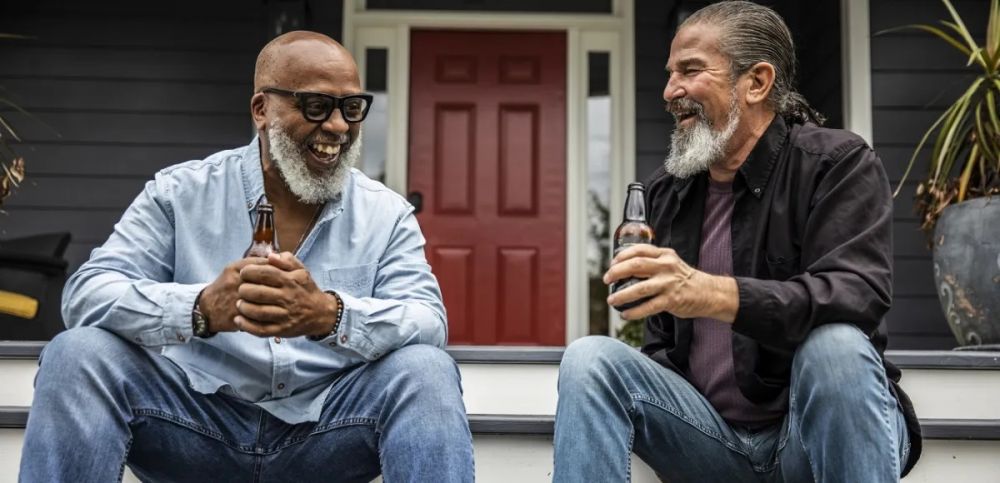1. Don’t wait for a crisis before offering to help.
Louise McLean, whose nonprofit provides necessities for more than 2,200 homeless children in Florida’s Brevard County, recalls the devastation in her state after Hurricane Irma in 2017. “We shouldn’t wait for a storm to hit to be a good neighbor,” McLean says. “Every day, someone is dealing with a storm in their own lives.”
For McLean, those are the children living in cars and using gas station bathrooms to get ready for school. She spoke of one 18-year-old boy who dropped out of school to care for his terminally ill mother, who had cancer. After her death, he had to get a job to support his family rather than return to school. But when his scoliosis made it difficult to maintain employment, his uncle kicked him out of the house. McLean’s foundation was able to pay for a place for him to live, provide him clothes and put him back in school. “He’s a good student, and he just wants to graduate,” she said. “It only takes a little bit from a lot of us to make a difference.”
2. Start a chain of good deeds with one small gesture.
Bryson Garbett says even seemingly simple things can lead to long-term dramatic changes in people’s lives. Garnett has helped build 177 classrooms over the last 18 years for nearly 100,000 students in the poorest regions of Mexico. “If I can be part of a student’s lifeline, perhaps I can set off a chain reaction that will change an entire life or a generation,” he says. “Something as simple as a backpack on the door of a shack can represent the most unspeakable beauty of better things to come.”
Garbett’s efforts have helped others like young Anna, who had to make dinner over an open fire every night for her and her grandmother because they didn’t have a stove. Anna then became the first person in her family to graduate from high school. She plans to become an engineer. “The stories of the lives I’m helping to change are what drive me,” Garbett says.
3. Appreciate the people who share your vision.
Howard “Hoddy” Hanna, whose real estate company has raised more than $14 million for children’s hospitals worldwide, thanks his 9,000 agents around the country for buying into his philanthropic vision and helping him achieve his goals. No one achieves their greatest dreams alone, Hanna says. “I owe everything I’ve accomplished to the great people who work for me and my family,” says Hanna, who runs the company with his sisters.
4. Don’t leave it to others to address a pressing need.
Kay Wilson-Bolton says many in her community may be naive to the extent of homelessness in the area. “They’re invisible to my community, but they’re not invisible to God,” Wilson-Bolton says. “But I’ve never met a homeless person who didn’t have a mother, a birthday, a first day at school or who didn’t once believe in Santa Claus.” Everyone—no matter what walk of life they’re from—deserves to be treated with humanity, she says. Wilson-Bolton’s charity helps to feed up to 600 homeless people a week.
Wilson-Bolton admitted that at one time, she wasn’t even aware of the extent of the homeless problem in her area either. But she refused to wait for someone else to do something about it. “I’ve learned to never say where I will not go or what I will not do,” she says. “God uses us to change lives. I’ve seen people returned to families and healed from shame and broken hearts.”
5. Show humility when someone asks for help.
Sal Dimiceli, who has helped thousands of poor people out of poverty, says that on a daily basis, he witnesses those who are struggling to afford shelter, food and utilities. He devotes 10 to 12 hours a day to bring relief to people through his charity. “I’ve looked into the eyes of children who are suffering, or senior citizens living in fear that they will be evicted,” Dimiceli says. “When I see the look in their eyes change from desperation to hope, it fills me with joy.”
Dimiceli, who has contributed $5 million of his own money to the charity, recalled growing up poor himself. He said his mother would regularly cry over their family’s disadvantages. It’s the memory of her tears that drives him to help others. “When I see pain, I address it,” he says. “That’s how I treat all of God’s creations.”
INFO PROVIDED BY: National Association of Realtors







